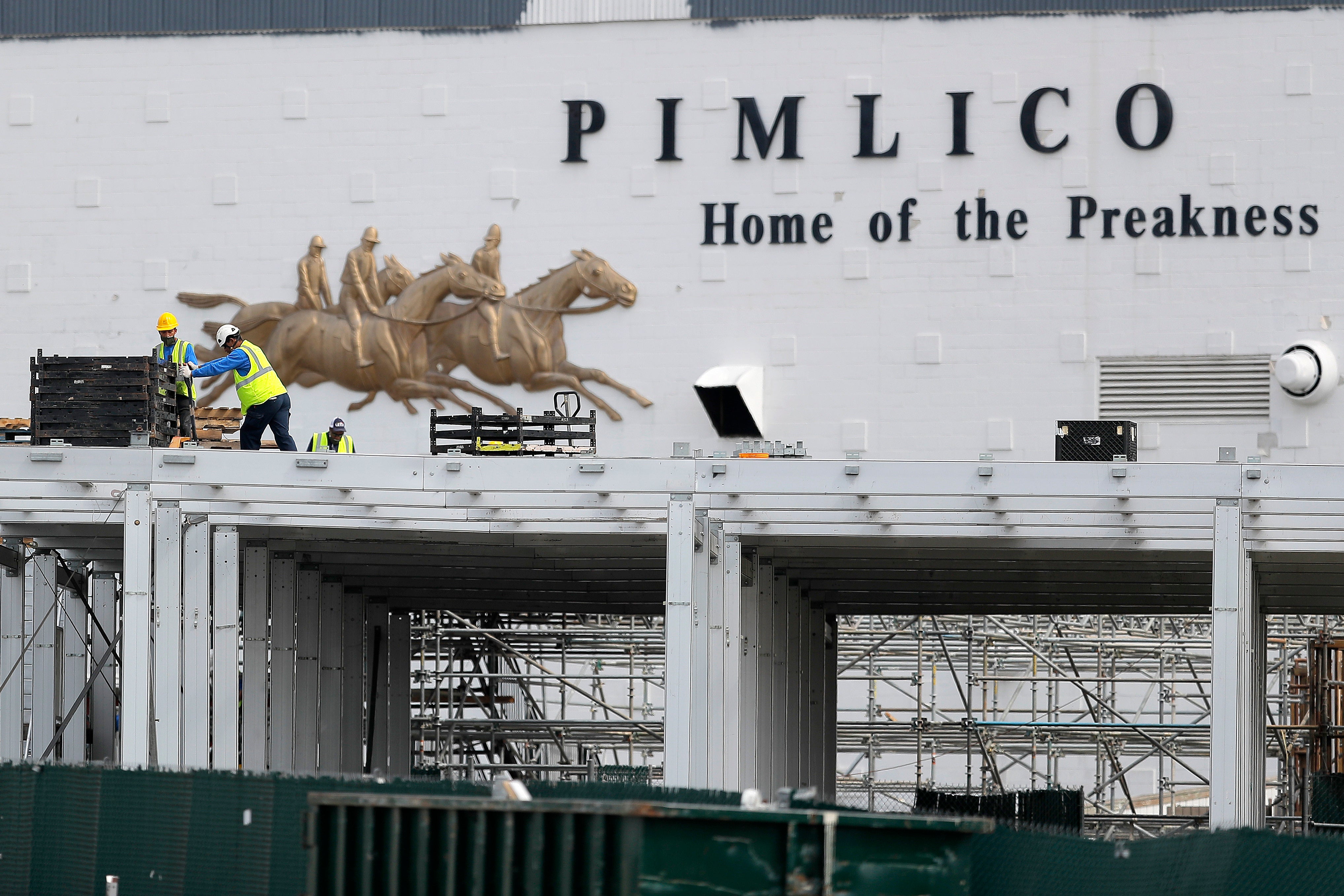Maryland lawmakers OK plan to rebuild Pimlico Race Course, home of the Preakness
Maryland lawmakers have approved a plan to rebuild Baltimore’s storied but antiquated Pimlico Race Course and transfer the track to state control

Maryland lawmakers approved a plan to rebuild Baltimore’s storied but antiquated Pimlico Race Course and transfer the track to state control in the waning hours of the state's legislative session on Monday.
The measure would use $400 million in state bonds to rebuild the home of the second jewel of horse racing’s Triple Crown, the Preakness Stakes.
The legislation also calls for transferring Pimlico from the Stronach Group, which is the current owner of Pimlico and nearby Laurel Park, to a newly formed nonprofit that would operate under the state.
The 105-32 vote in the Maryland House sends the bill to Gov. Wes Moore, who has expressed support for it.
“We think it’s important to not just make sure that we’re protecting an industry that means a lot to this state, not just in terms of its history but in terms of its future, but also this is an important bill for the community,” Moore, a Democrat, told reporters earlier in the day.
Under the plan, the Preakness would relocate to Laurel Park in 2026 while the new facility is being built, before returning to Pimlico, likely in 2027. The temporary move would come as the third Triple Crown race, the Belmont Stakes, is scheduled to return to Belmont Park from a two-year hiatus at Saratoga Race Course while the New York track undergoes a $455 million reconstruction.
The bill, which was introduced late in the session, faced a shaky path through the legislature. Some lawmakers were concerned about the state assuming liability for operating costs. The measure was amended to use horse racing purse accounts to cover operating losses.
“I’m glad to bet on ourselves, but there’s a reason that the industry has been struggling, and we can only do so much," said Senate President Bill Ferguson, a Baltimore Democrat. "It’s not a blank check, and so this caps the liability for the state.”
Maryland lawmakers approved a plan in 2020 to rebuild the track, but it never got off the ground. The new plan increases the amount of state bonds to be used from $375 million to $400 million. The plan also calls for a training facility, with details to be determined.
The state has been wrestling with what to do to restore the old racetrack for decades. Aptly nicknamed Old Hilltop, the track opened in 1870. It’s where Man o’ War, Seabiscuit, Secretariat and many others pranced to the winner’s circle.
But its age has long been a concern. In 2019, the Maryland Jockey Club closed off nearly 7,000 grandstand seats, citing the “safety and security of all guests and employees.” The Preakness has struggled to draw pre-pandemic attendance numbers in recent years, down to 65,000 people in 2023 for Friday and Saturday compared to more than 180,000 for the same days four years earlier.
At the end of the legislative session last year, the Maryland Thoroughbred Racetrack Operating Authority was created and tasked with taking another look at options, and it made recommendations in January to invest in Pimlico to take on a greater role in holding races.
The horse racing industry has long played a big role in Maryland culture. The racing industry and other equine industries have been a cornerstone of Maryland agriculture, as well as an integral part of preserving green space. The equine industry has an estimated $2 billion direct economic impact on the state.
___
AP sports: https://apnews.com/sports
Bookmark popover
Removed from bookmarks